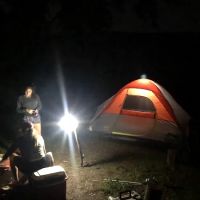National Park Service - Delaware River - Ratcliffs - Campsites # 52-54 Introduce
Are you a New Jersey resident with a deep love for raw, untamed nature, seeking a truly primitive and challenging outdoor experience? While many campgrounds offer amenities and structured activities, some adventurers crave a more rugged encounter with the wilderness. If you’re one to embrace the wild and are prepared for a no-frills camping trip, then the National Park Service - Delaware River - Ratcliffs - Campsites #52-54 near Layton, NJ, might pique your interest. These sites offer a unique, unvarnished glimpse into the backcountry camping experience along the majestic Delaware River.
Managed by the National Park Service as part of the vast Delaware Water Gap National Recreation Area, these campsites are known for their primitive nature. They are primarily designed for river-based trips, offering a resting spot for those on extended paddling or boating adventures. Unlike more developed campgrounds, these sites emphasize self-sufficiency and minimal impact on the environment, aligning with the "Leave No Trace" principles of wilderness camping.
It's crucial for prospective campers to manage expectations when considering these specific Ratcliffs campsites. Recent reviews from real customers paint a vivid picture of their primitive condition. For instance, one camper from September 2021 noted that "Ratcliffs 51 and 52 were completely overgrown, no access. 53 had a visible path to the site, but was covered waist-high with weeds." Furthermore, Site 54 was described as having "a steep muddy incline to access the site... If there has been any rain, this site will be inaccessible due to the mudslide of an access trail." These accounts highlight that these are truly wild sites, requiring campers to be prepared for challenging terrain, potential overgrowth, and a strong presence of insects. A camper in July 2020 also echoed these sentiments, finding sites "completely over grown" and advising to "pass this up" for a "no stress site."
For the seasoned outdoor enthusiast, however, these very challenges can be part of the appeal. It's an opportunity to truly test your preparedness, practice your outdoor skills, and experience an authentic, untamed slice of the Delaware Water Gap. If you're a New Jersey local with a sense of adventure, a well-equipped backpack, and a realistic understanding of primitive camping, these sites could offer the solitude and raw natural beauty you seek along the iconic Delaware River.
National Park Service - Delaware River - Ratcliffs - Campsites #52-54 are located near Layton, NJ 07851, USA. This places them within the sprawling and breathtaking Delaware Water Gap National Recreation Area, a cherished natural treasure that spans parts of New Jersey and Pennsylvania. The specific location of these campsites along the Delaware River emphasizes their primary accessibility: by water.
These are classified as "primitive river campsites," meaning they are predominantly accessed by those undertaking multi-day river trips via canoe, kayak, or raft. Unlike roadside campgrounds, there is generally no vehicle or direct trail access to these specific sites. Campers planning to stay here must be prepared for a water-based arrival and departure, making them ideal for experienced paddlers and those seeking a true river adventure.
Layton, NJ, serves as a general geographic marker for these sites. While you won't drive directly to the campsites, the town of Layton offers a gateway to the southern end of the Delaware Water Gap National Recreation Area in New Jersey. For New Jersey residents, accessing launch points for river trips is convenient. Various liveries and access points along the Delaware River (both on the New Jersey and Pennsylvania sides) provide starting points for multi-day excursions that could include a stop at the Ratcliffs campsites.
The Delaware Water Gap area is typically a 1.5 to 2.5-hour drive from major New Jersey population centers like Newark, Trenton, and the New York City metropolitan area. This relatively close proximity makes a primitive river camping trip a feasible and attractive option for local outdoor enthusiasts. However, once you're on the river, the sense of remoteness and immersion in nature quickly takes over, offering a profound escape from urban life. It’s crucial to research designated river access points and overnight parking regulations within the National Park Service boundaries before embarking on your trip.
As primitive river campsites managed by the National Park Service, Ratcliffs - Campsites #52-54 offer a very basic and "leave no trace" oriented experience. The services provided are minimal, focusing on core necessities rather than amenities. This is a deliberate design to preserve the natural environment and cater to a self-sufficient camping style.
Here are the typical services and features you can expect:
Designated Campsite Space: The primary service is the provision of a designated area for camping. This means you have a recognized spot where pitching a tent is permitted. However, as reviews indicate, these "designated spaces" can be overgrown and require personal clearing upon arrival.
Fire Rings/Grates: Small fires are generally permitted only in existing fire grates. Campers are expected to use dead and down wood only, and cutting standing trees is strictly prohibited. Bringing your own firewood is often recommended due to limited accessible wood at the site.
Limited or No Direct Water Source: These primitive sites typically do NOT have potable drinking water available directly at the campsite. Campers MUST bring all their own water or be equipped with a reliable water filter/purification system for river water, which should never be consumed directly without treatment. While some general camping areas in the park have seasonal drinking water (e.g., at Bath Rock), this is usually not at primitive river sites.
Basic Waste Disposal (Pack It In, Pack It Out): A fundamental principle of primitive camping is "pack it in, pack it out." This means all trash, including food waste, must be carried out of the site by the camper. There are no trash receptacles provided at these individual primitive sites.
Sanitation Guidelines (No Facilities): There are no flush toilets or vault toilets directly at these primitive river campsites. Campers are required to follow Leave No Trace principles for human waste, which includes burying fecal material at least 6 inches deep and at least 300 feet away from water sources. Urination should also be done away from water bodies.
Permit-Based Access: While not a "service" in the traditional sense, obtaining the necessary permits and making reservations through Recreation.gov is a required step for using these sites. This system helps manage use and ensures compliance with park regulations.
It is crucial to understand that these sites are not for those seeking glamping or amenity-rich experiences. They demand self-reliance, preparedness, and a strong commitment to environmental stewardship. Campers should be prepared for all their needs, from shelter and food to water and waste management.
For the adventurous New Jersey camper, the National Park Service - Delaware River - Ratcliffs - Campsites #52-54 offer distinct features and highlights, though they cater to a specific, rugged camping style. It's important to view these "highlights" through the lens of primitive, backcountry river camping:
Secluded, Primitive Riverfront Access: The most significant highlight is their direct, albeit challenging, access to the Delaware River. These sites are designed for paddlers and offer a chance to truly immerse yourself in the river environment, away from crowds. The river itself is a major draw for activities like fishing, paddling, and wildlife viewing. The solitude afforded by their primitive nature is a key feature for those escaping bustling areas.
Authentic Wilderness Experience: These campsites provide an unvarnished taste of the wilderness. Unlike highly manicured campgrounds, you'll encounter nature in its raw form, including overgrown areas, natural terrain, and abundant wildlife. This is a significant draw for campers who prioritize authenticity and a challenge.
Beautiful Delaware Water Gap Scenery: While the campsites themselves might be rustic, they are set within the stunning backdrop of the Delaware Water Gap National Recreation Area. This means access to incredible natural beauty, including forested riverbanks, dramatic cliffs, and diverse ecosystems. The "kinda pretty" sentiment, though not directly about these sites, rings true for the larger area.
Challenge and Skill Development: For experienced campers, these sites offer an opportunity to test and hone their primitive camping skills. Navigating overgrown paths, setting up camp on uneven terrain, and managing resources without amenities becomes part of the adventure and a source of satisfaction.
Limited Capacity for Solitude: With a small number of designated sites (52-54), and their primitive nature often deterring less prepared campers, there's a higher likelihood of experiencing true solitude. This is a coveted feature for those seeking peace and quiet away from heavily trafficked areas.
It's vital to acknowledge the challenges noted in reviews, such as overgrowth, steep and muddy access, lack of readily available firewood, and significant insect presence. For the right kind of camper – one who is well-prepared, enjoys a challenge, and prioritizes solitude and a deep connection with untouched nature – these very aspects transform into the unique highlights of a primitive river camping experience at Ratcliffs.
As sites managed by the National Park Service within the Delaware Water Gap National Recreation Area, Ratcliffs - Campsites #52-54 do not offer traditional "promotions" or "special offers" in the commercial sense. National Parks operate differently from private campgrounds, focusing on resource protection, public access, and standard fee structures rather than marketing incentives. There are no discounts for booking multiple nights, seasonal deals, or loyalty programs.
However, understanding the fee structure and reservation process is the equivalent of understanding "offers" in this context:
Standard Primitive Campsite Fee: These primitive river campsites typically have a set, modest fee per night. Information from the National Park Service indicates that primitive river campsites are available by reservation at a cost, often around $16 per site per night (though always confirm the current fee on Recreation.gov). This is generally a very affordable option for overnight stays compared to developed campgrounds.
Reservation System via Recreation.gov: The primary "offer" is the ability to reserve these specific sites in advance through Recreation.gov. This ensures that a site will be available upon your arrival, which is crucial for remote, river-accessible sites. Reservations are mandatory and cannot be made in person.
Accessibility to a National Recreation Area: The inherent "value" or "offer" is the access to the vast and protected natural resource of the Delaware Water Gap National Recreation Area. Your camping fee contributes to the maintenance and preservation of this stunning landscape, allowing for continued public enjoyment of hiking, paddling, fishing, and wildlife viewing opportunities.
There are no seasonal discounts, group discounts (for these individual sites), or other promotional campaigns. The consistent pricing reflects the National Park Service's mandate for equitable access and resource management. For New Jersey locals, the primary "promotion" is simply the availability of an affordable, authentic primitive camping experience within a nationally protected natural area, accessible for those willing to embrace its rugged nature.
For inquiries related to National Park Service - Delaware River - Ratcliffs - Campsites #52-54, it's important to understand that you won't be contacting a specific site manager at the campground itself, but rather the broader management of the Delaware Water Gap National Recreation Area or the federal reservation system.
Here's how to get information or make reservations:
Address (General Area):
Layton, NJ 07851, USA (This is the general vicinity; there is no direct street address for these primitive campsites).
For Reservations (Mandatory):
All primitive river campsites within the Delaware Water Gap National Recreation Area, including Ratcliffs, must be reserved in advance through Recreation.gov.
Visit: Recreation.gov
Or call: (877) 444-6777 (Recreation.gov Reservation Line)
It is crucial to make reservations prior to arriving in the park, as walk-ins are not permitted for these specific sites, and there is no on-site registration. You will select a river zone and then choose an individual site upon arrival within that zone. Ratcliffs is part of the larger system of primitive river campsites.
For General Park Information (Delaware Water Gap National Recreation Area):
For broader questions about the Delaware Water Gap National Recreation Area, including river conditions, safety guidelines, and general park rules, you can contact the park directly.
Phone: (570) 426-2452 (Delaware Water Gap National Recreation Area Information Desk)
Mailing Address:
Delaware Water Gap National Recreation Area
P.O. Box 2
Bushkill, PA 18324
Checking the official National Park Service website for the Delaware Water Gap National Recreation Area (nps.gov/dewa) is also highly recommended for up-to-date conditions, alerts, and detailed information about river camping regulations.
For New Jersey residents, the National Park Service - Delaware River - Ratcliffs - Campsites #52-54 offer a uniquely suitable, albeit challenging, opportunity for an authentic outdoor adventure. This destination is not for every camper, but for those who truly embrace the wild side of nature, it holds significant appeal.
Firstly, its proximity to major New Jersey population centers makes it an accessible escape. Within a few hours' drive, you can transition from the hustle of urban life to the serene, untamed banks of the Delaware River. This allows for multi-day river trips or extended weekend getaways without the need for extensive travel plans, making it a feasible option for local adventurers.
Secondly, for the seasoned or aspiring primitive camper, these sites offer an invaluable experience. They demand self-sufficiency, preparedness, and an understanding of Leave No Trace principles. For New Jersey locals looking to hone their outdoor skills, disconnect from modern conveniences, and truly test their mettle against the elements, Ratcliffs provides the perfect proving ground. This is a place where you truly earn your solitude and appreciate the raw beauty of your surroundings.
Thirdly, being part of the Delaware Water Gap National Recreation Area provides access to a protected and incredibly scenic natural environment. While the campsites themselves are rugged, they are nestled within a region renowned for its stunning river vistas, hiking opportunities, and rich biodiversity. For New Jersey residents who cherish these natural resources, camping here offers a profound connection to their state's wilderness heritage.
Finally, for those seeking true solitude and a break from overcrowded parks, the primitive, water-access-only nature of these sites often filters out less prepared campers. This means a higher likelihood of experiencing genuine peace and quiet, allowing for deep immersion in nature, stargazing, and an undisturbed connection with the environment—a rare commodity in a densely populated state like New Jersey.
While the reviews clearly indicate the rugged and sometimes challenging conditions (overgrowth, muddy access, bugs), these are the very elements that define a primitive camping experience. For the New Jersey adventurer who understands and embraces these realities, Ratcliffs Campsites #52-54 represent an unparalleled opportunity to forge unforgettable memories in the heart of the Garden State's wild beauty, a true test and reward for the dedicated outdoor enthusiast.
Alternative Option
National Park Service - Delaware River - Ratcliffs - Campsites # 52-54 Details
Amenities
- Tent sites
Children
- Good for kids
Parking
- On-site parking
National Park Service - Delaware River - Ratcliffs - Campsites # 52-54 Photos
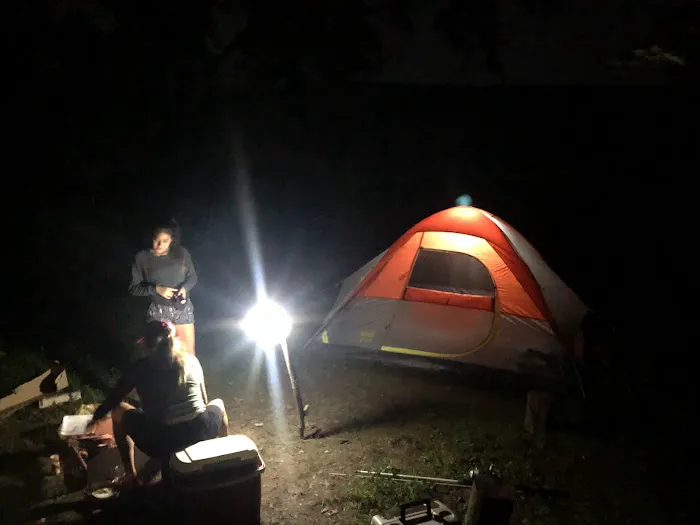
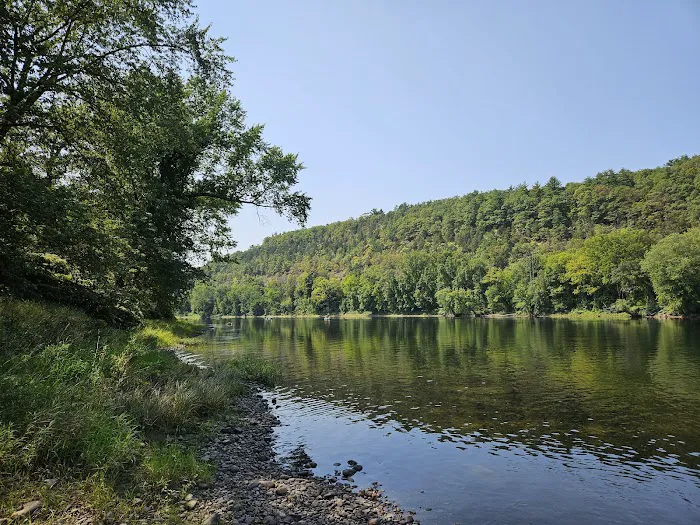
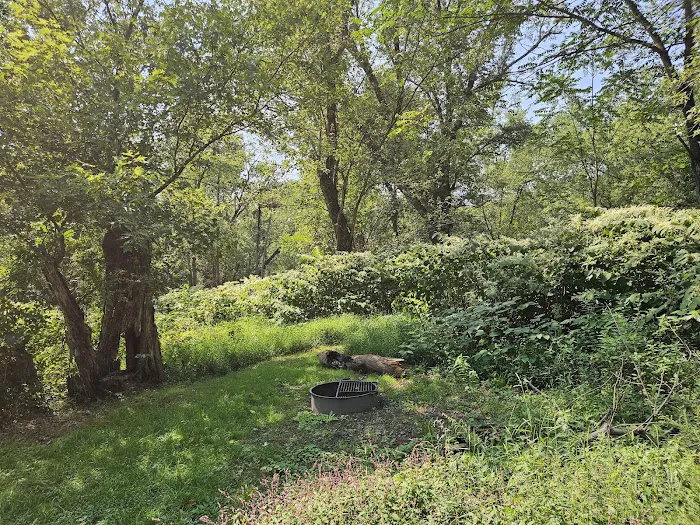
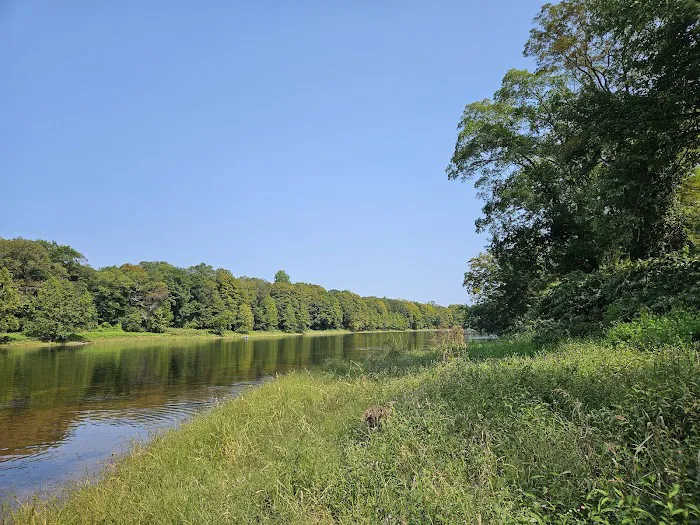

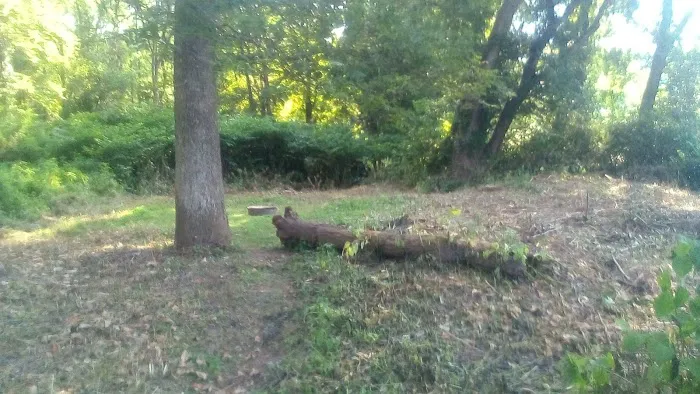
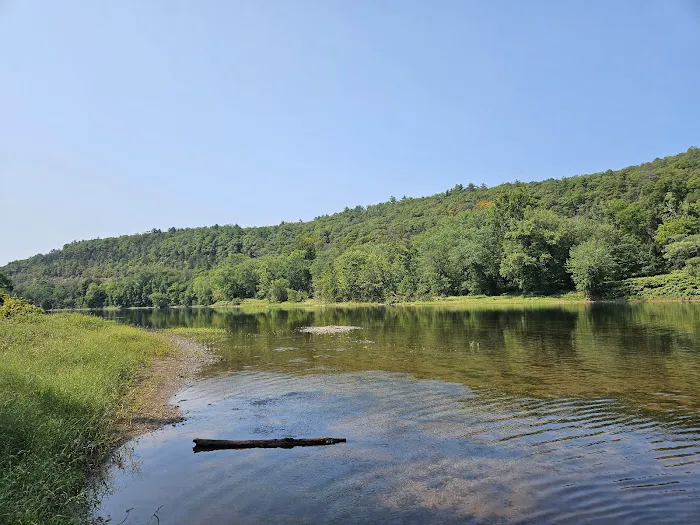
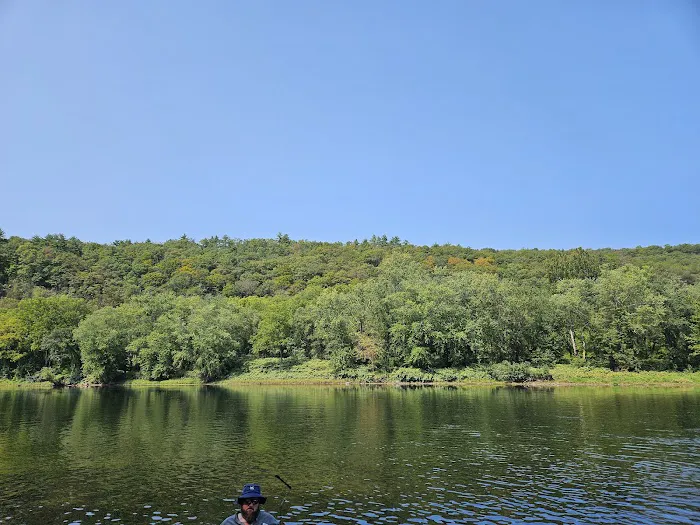
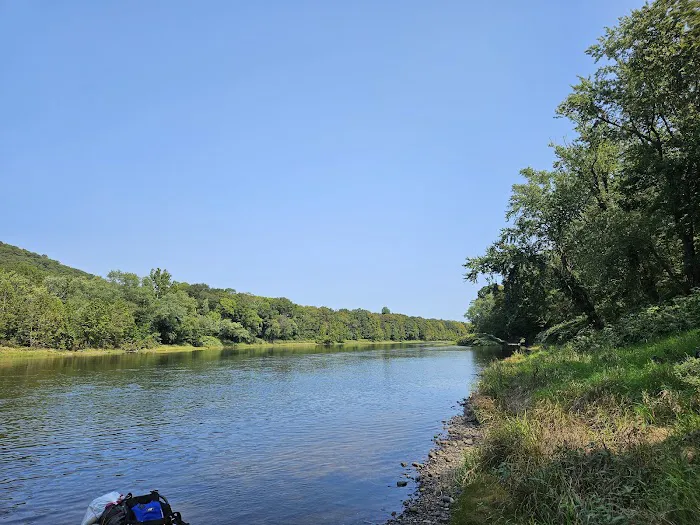
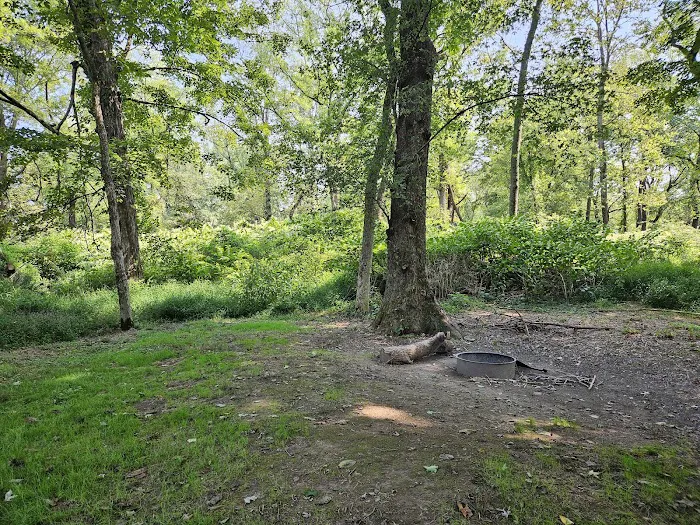
National Park Service - Delaware River - Ratcliffs - Campsites # 52-54 Location
National Park Service - Delaware River - Ratcliffs - Campsites # 52-54
Layton, NJ 07851, USA
National Park Service - Delaware River - Ratcliffs - Campsites # 52-54 Reviews
hammock
★ 5★ 4★ 3★ 2★ 1September 2021: Ratcliffs 51 and 52 were completely overgrown, no access. 53 had a visible path to the site, but was covered waist-high with weeds.We stayed at 54, featuring a steep muddy incline to access the site some 30 odd feet above the water. We had to hack stairs to make this passable to move gear up the hill. If there has been any rain, this site will be inaccessible due to the mudslide of an access trail.Barely enough room to situate a 4 person tent far enough from the fire. There is next to no wood accessible here unless you want to cut a trail through waist high tick infested grasses. Mosquitoes were as bad as I've ever experienced (30 bites on my lower arm / elbow bitten through a coat and shirt!)
September 20 · James SavickasIf you are kayak camping and looking for a no stress site. I would pass up #53? #54?. It was completely over grown in July 2020. The whole area where you pitch your tent was overgrown. It wouldn't have been as enjoyable as some of the other sites. We decided to pass this up and check at the bend.Also - the swimming area at the river is mud. Mud you just sink into. Not enjoyable at all.I'm sure after a few people camp here and take the time to clear it out it would be fine to camp but the swimming area would not be ideal.
July 30 · Buck R-TThe sites were very overgrown as of June 2021. The first site you come across coming down the river you have to climb up a large sandy cliff to get to the top of and the grass is waist high, even the fire pit has grass growing in it. The 3 other sites would be most suitable for camping, but be sure to bring a machete to clear out your site. You might also need to clear out some of the overgrown paths to collect firewood, for it was difficult to find much of anything in the tall and thick grass. There was not many suitable trees to hang hammocks, so plan on bringing some other type of shelter. Insect repellent is also a must have at these sites, I had 6 ticks on myself and 30 mosquito bites on my ankles and my girlfriend had 50+ mosquito bites on her leg. In my opinion, these sites would be a last resort if all the other sites are taken along the river. Although not a terrible spot, there are much nicer sites through the National Park that are not so overgrown.
June 09 · Isaac OxfordStayed at RA-3. Campsites have all been relabeled now that permits are required for stays. River was high so the landing was easily accessible. Site had more than enough room for 3 tents and 2 hammock set ups.
June 11 · ForrestRA 1 camp site. Not much favorite. A bit small and rough.
July 01 · Joseph Wedin
More Camping Near Me
 Valley View Group Campground4.0 (11 reviews)
Valley View Group Campground4.0 (11 reviews)Lehman Township, PA 18324, USA
 River Bend Group Campground4.0 (26 reviews)
River Bend Group Campground4.0 (26 reviews)Layton, NJ 07851, USA
 MC-2 River Campsite0.0 (0 reviews)
MC-2 River Campsite0.0 (0 reviews)Lehman Township, PA 18328, USA
 National Park Service - Delaware River - Mill Creek - Campsite # 353.0 (2 reviews)
National Park Service - Delaware River - Mill Creek - Campsite # 353.0 (2 reviews)Lehman Township, PA 18328, USA
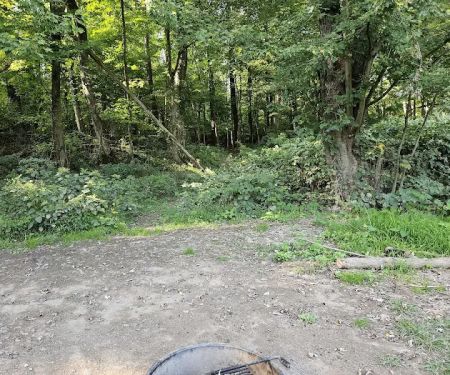 National Park Service - Delaware River - Jerry Lees - Campsites # 33-344.0 (6 reviews)
National Park Service - Delaware River - Jerry Lees - Campsites # 33-344.0 (6 reviews)Lehman Township, PA 18328, USA
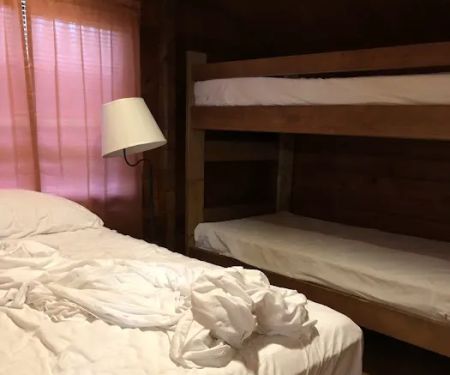 Thousand Trails Timothy Lake South4.0 (459 reviews)
Thousand Trails Timothy Lake South4.0 (459 reviews)2043 Allegheny Ln, East Stroudsburg, PA 18302, USA
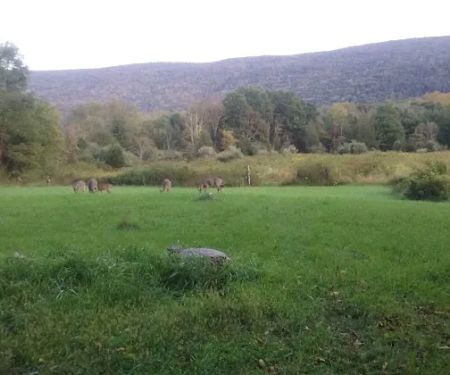 Bear Creek Campgrounds4.0 (44 reviews)
Bear Creek Campgrounds4.0 (44 reviews)9 County Rd 615, Walpack Township, NJ 07881, USA
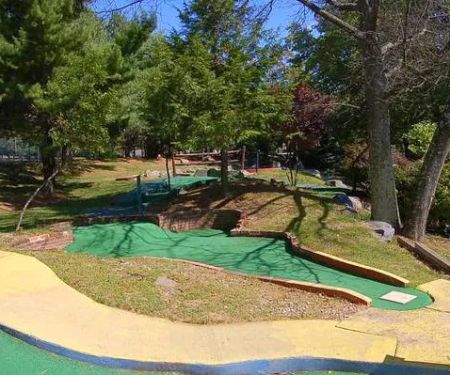 Thousand Trails Timothy Lake North3.0 (229 reviews)
Thousand Trails Timothy Lake North3.0 (229 reviews)6837 Timothy Lake Rd, East Stroudsburg, PA 18302, USA
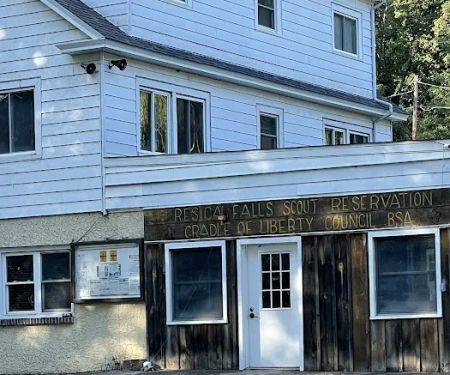 Resica Falls Scout Reservation4.0 (126 reviews)
Resica Falls Scout Reservation4.0 (126 reviews)1200 Resica Falls Rd, East Stroudsburg, PA 18302, USA
 State Forest Campsite #S0061.0 (1 reviews)
State Forest Campsite #S0061.0 (1 reviews)PA-402, East Stroudsburg, PA 18328, USA
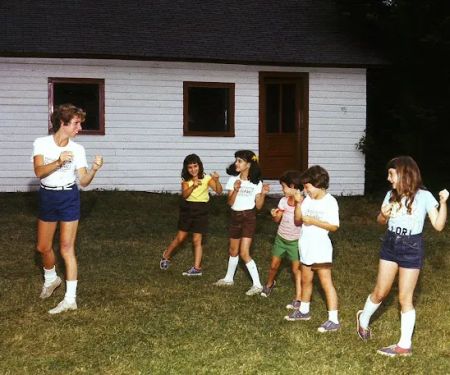 Camp Log-N-Twig4.0 (6 reviews)
Camp Log-N-Twig4.0 (6 reviews)130 Log and Twig Rd, Dingmans Ferry, PA 18328, USA
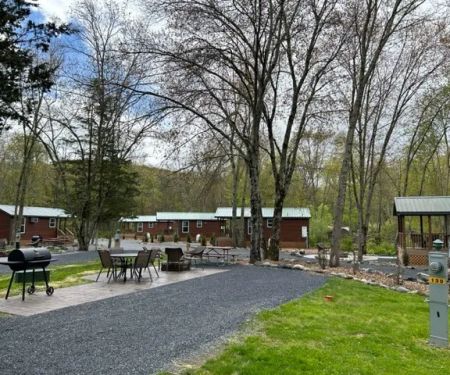 Delaware Water Gap / Pocono Mountain KOA Holiday4.0 (802 reviews)
Delaware Water Gap / Pocono Mountain KOA Holiday4.0 (802 reviews)227 Hollow Rd, East Stroudsburg, PA 18302, USA
Categories
Top Visited Sites
 Juniper Family Campground4.0 (165 reviews)
Juniper Family Campground4.0 (165 reviews)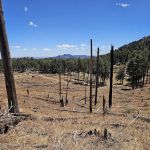 Rustler Park4.0 (24 reviews)
Rustler Park4.0 (24 reviews)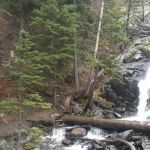 Hellroaring Creek5.0 (1 reviews)
Hellroaring Creek5.0 (1 reviews)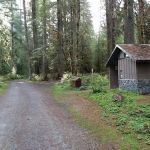 Park Creek Campground4.0 (39 reviews)
Park Creek Campground4.0 (39 reviews) Spanish Main RV Resort5.0 (2 reviews)
Spanish Main RV Resort5.0 (2 reviews)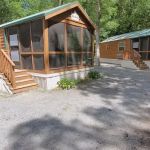 Homestead Campground4.0 (289 reviews)
Homestead Campground4.0 (289 reviews)Top Camping Searches
Trending The Campfire Posts
 Campfire-Inspired Recipes from Around the Globe – Delicious Meals for Outdoor Cooking
Campfire-Inspired Recipes from Around the Globe – Delicious Meals for Outdoor Cooking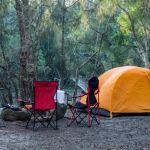 How to Set Up a Campsite for Maximum Comfort – Expert Tips for a Great Experience
How to Set Up a Campsite for Maximum Comfort – Expert Tips for a Great Experience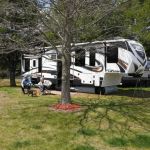 How to Find Campgrounds with Year-Round Availability
How to Find Campgrounds with Year-Round Availability Top 10 Mistakes to Avoid While Camping Alone: Stay Safe and Enjoy Your Trip
Top 10 Mistakes to Avoid While Camping Alone: Stay Safe and Enjoy Your Trip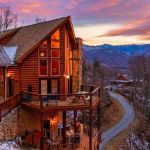 Cottages Near Me with Mountain Sunrise Views: Find Your Perfect Escape
Cottages Near Me with Mountain Sunrise Views: Find Your Perfect Escape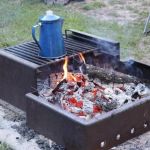 How to Light and Maintain a Safe Campfire in a Designated Site
How to Light and Maintain a Safe Campfire in a Designated Site
